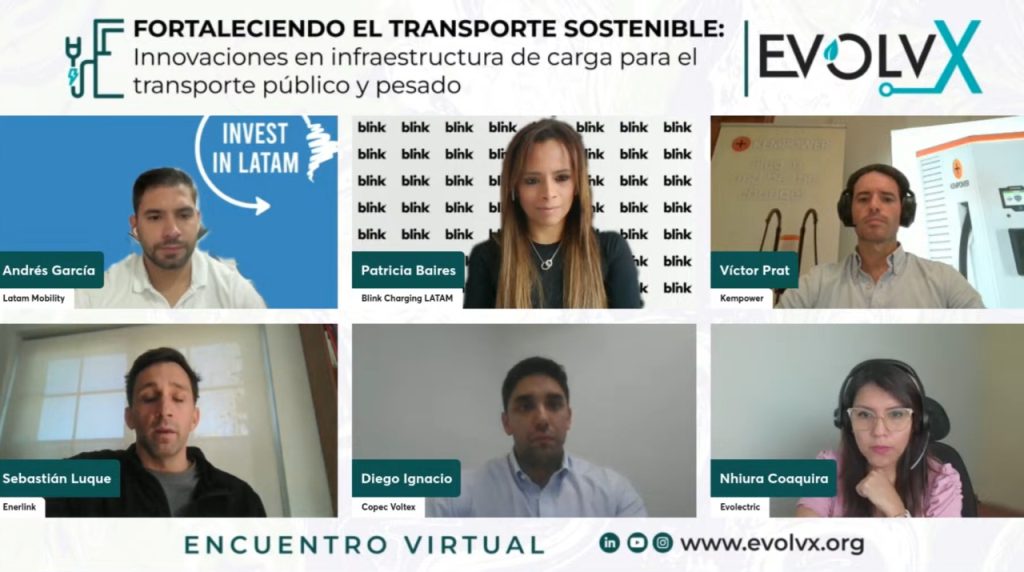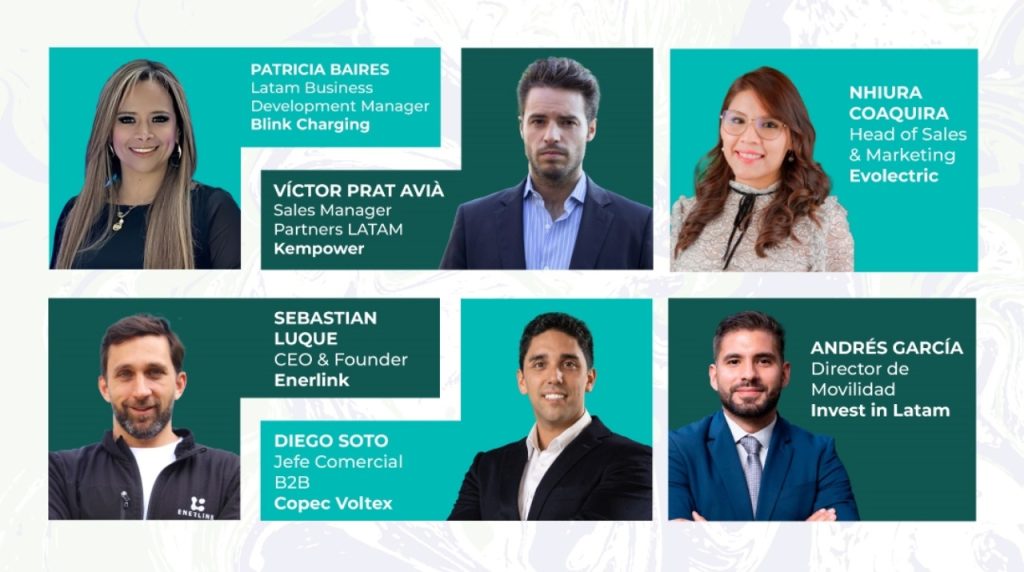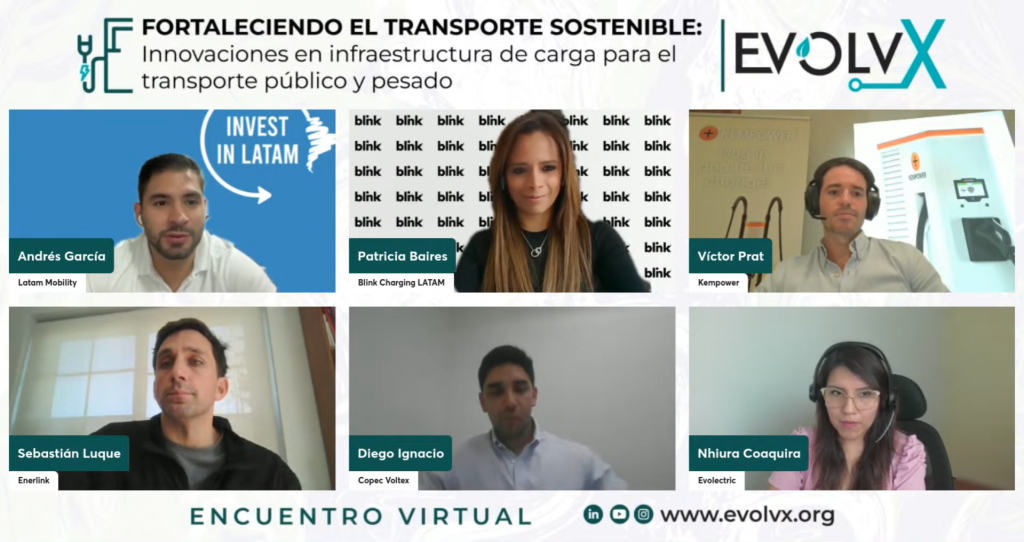
EvolvX Perspective: Strengthening Sustainable Transport in Latin America

Sustainable transport is a priority for energy transition and combating climate change. In the August edition of “EvolvX Perspective,” critical issues related to strengthening sustainable transport were discussed, particularly in the realms of freight and public passenger transport in Latin America.
This virtual meeting, led by Andrés García, Director of Mobility at Invest in Latam, brought together experts and industry leaders to discuss best practices, challenges, and innovations shaping the region.
Among them, Patricia Baires, Latam Business Development Manager at Blink Charging, Víctor Prat Avià, Sales Manager LATAM Partners at Kempower, Nhiura Coaquira, Head of Sales and Marketing at Evolectric, Sebastián Luque, CEO and Founder of Enerlink, and Diego Soto, B2B Sales Manager at Copex Voltex.

The Importance of Sustainable Transport
Transport is one of the most critical sectors for achieving the decarbonization of economies in Latin America, responsible for a significant portion of greenhouse gas emissions with a direct impact on the quality of life for millions of people.
In this context, sustainable mobility becomes a fundamental pillar for any regional sustainability strategy. During the session, experts highlighted the importance of strengthening knowledge and professional relationships that drive sustainable mobility.
In this regard, innovation in public and freight transport goes beyond sustainable mobility from a comprehensive perspective, encompassing the implementation of effective public policies, the use of biofuels, and the adoption of advanced technologies such as artificial intelligence and smart cities.
Progress and Challenges
Latin America has made significant progress in terms of transport innovation, despite economic and logistical challenges. Colombia, Chile, and Mexico have implemented pioneering projects in the electrification of their public transport, reducing emissions and improving air quality and public health.

Regarding charging infrastructure, progress has been made, but much remains to be done to develop a robust and accessible infrastructure network across the region, where lessons Latin America can learn from other regions of the world are crucial.
Collaboration between the public and private sectors is important to accelerate the implementation of charging infrastructure, alongside incentive policies that facilitate the adoption of electric vehicles.
In this regard, Latam Mobility will continue organizing in-person and virtual meetings that serve as a platform for experts like Patricia, Víctor, Nhiura, and Sebastian, facilitators of dialogue to share knowledge, experiences, proposals, and solutions to support the transition towards cleaner, more efficient, and sustainable mobility across the region.
Thus, it is clear that advancements in the electrification of public transport and the creation of charging infrastructure are important steps, but the road ahead is still long, as collaboration and knowledge exchange will be key to overcoming challenges and seizing opportunities.





